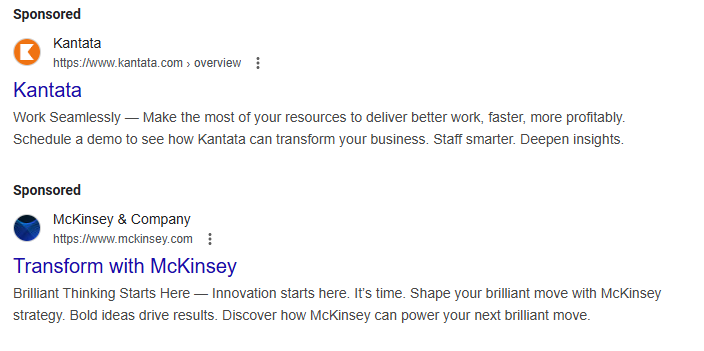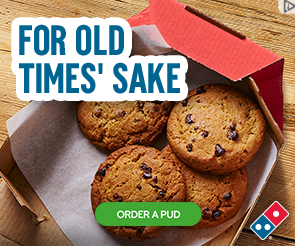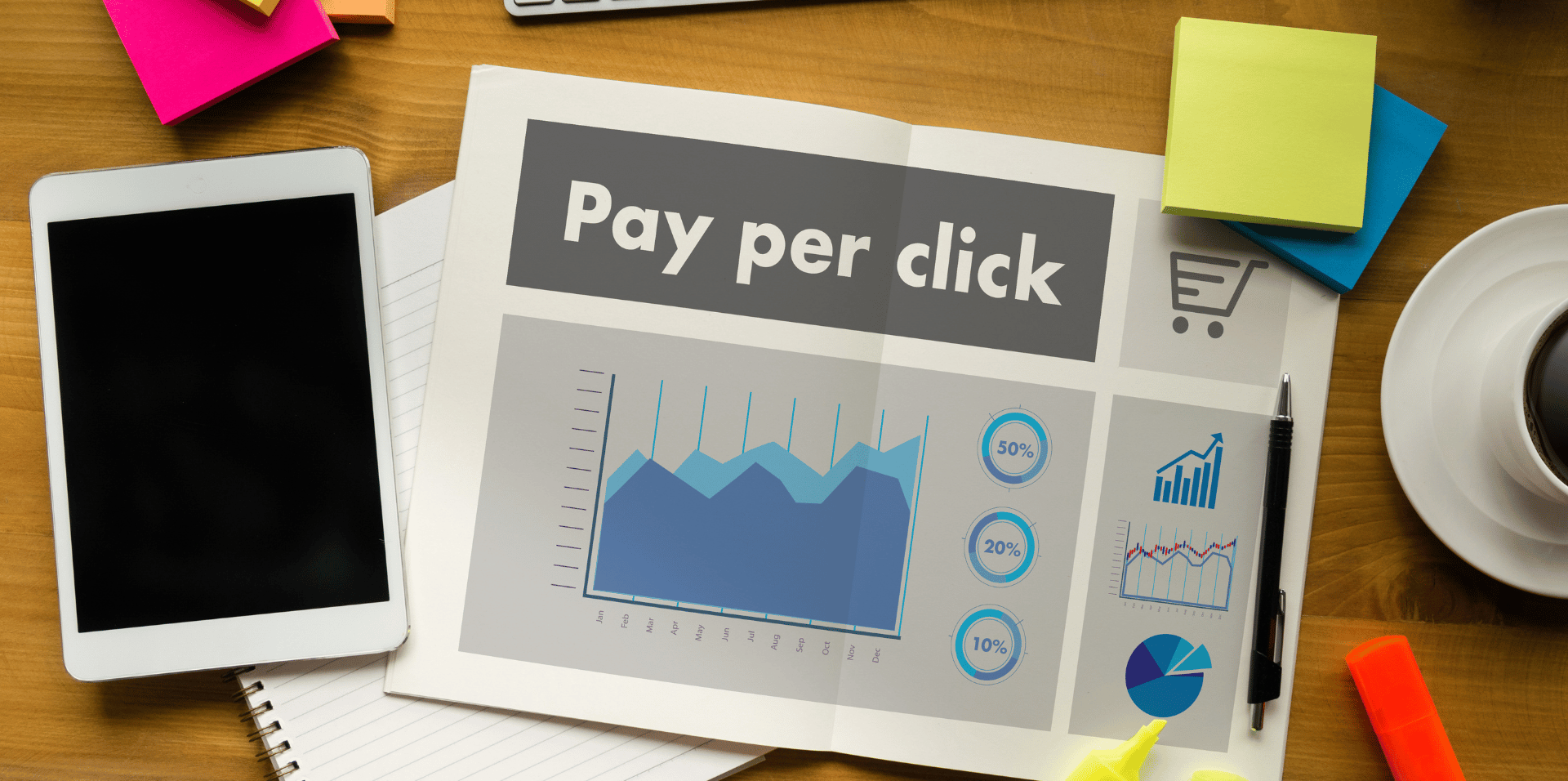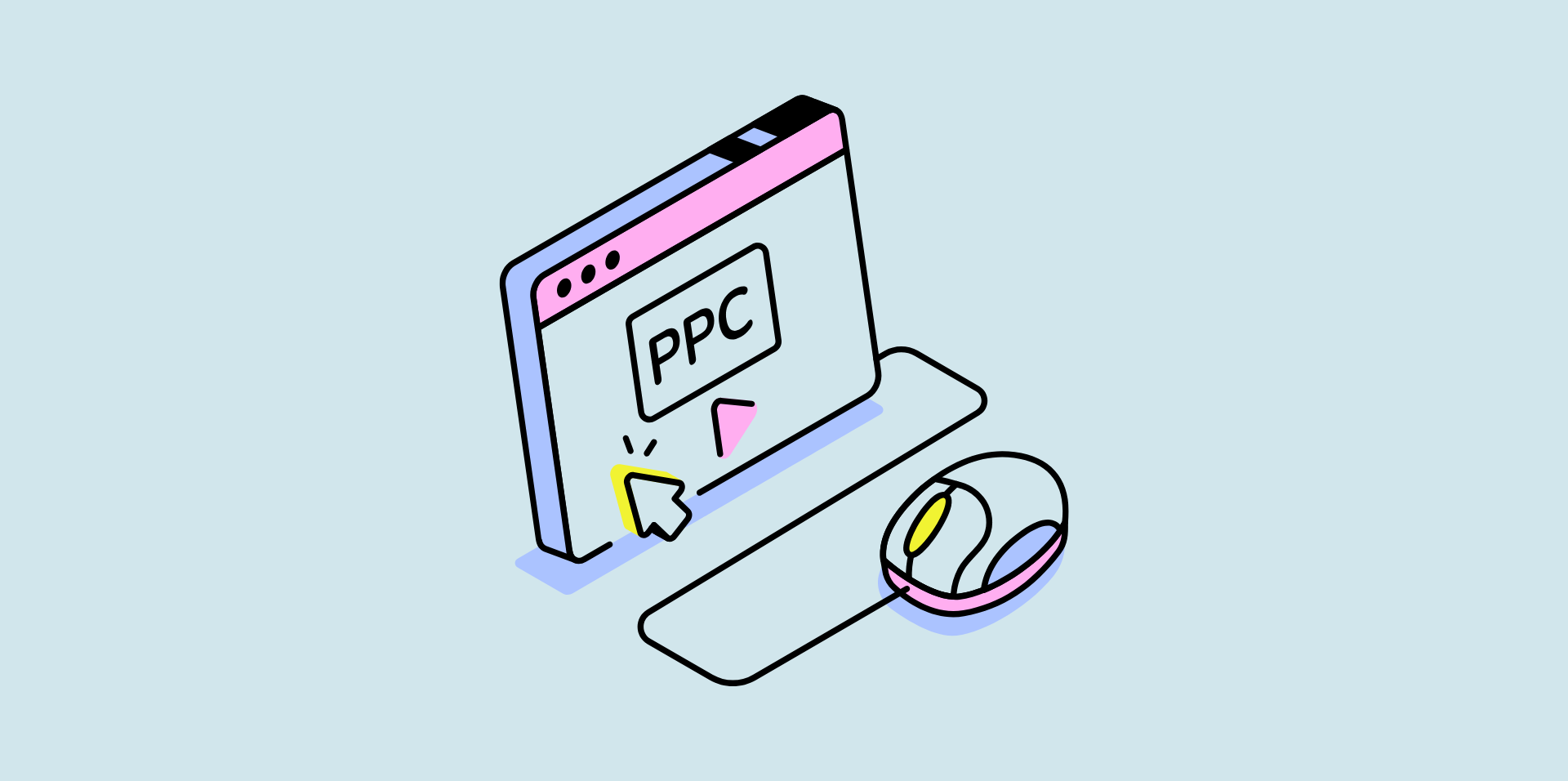PPC advertising is one of the most powerful forms of online advertising, used by businesses of all sizes, from local service providers and e-commerce brands to national B2B companies. If you’re new to PPC and want to understand how it can benefit your business, our guide will explain how PPC works, highlight the leading platforms and campaign types, and explore the benefits.
At britweb, our PPC marketing services help drive traffic, increase conversions, and grow revenue with high-performing PPC campaigns. To find out how our expert team can help you get the most from your ad spend, contact us today.
What is PPC advertising?
PPC advertising (Pay-Per-Click) is a form of online marketing where advertisers are charged only when a user clicks on their ad. These ads are commonly displayed in prominent positions on search engine results pages (SERPs), such as on Google or Bing, and also across social media platforms like Facebook, Instagram, and LinkedIn.
Instead of earning visits organically through search engine optimisation (SEO), PPC allows advertisers to buy visibility by bidding on relevant keywords. When someone searches for those terms, their ad can appear, and they only pay when it’s clicked.
It’s a fast, measurable, and highly targeted way to drive traffic, generate leads, or boost sales. Popular PPC platforms include Google Ads, Microsoft Advertising, and Meta Ads (the platform used to run ads across Facebook, Instagram, Messenger, and the Meta Audience Network), offering various campaign types like search ads, shopping ads, display ads, and remarketing campaigns.
How does PPC work?
PPC advertising works on a bid-based auction system where advertisers compete to display their ads when users search for specific keywords. The goal is to appear in a prime position on a search engine results page (SERP) or a social media platform.
Here’s a simple breakdown of how it works:
- A user types a query into a search engine like Google or Bing.
- The search engine scans its database for ads that match the query using keywords.
- Advertisers who have targeted that keyword enter an auction.
- The ad rank is calculated for each ad based on the advertiser’s maximum bid, ad quality, ad copy, landing page relevance, and other factors.
- The winning ads are shown on the SERP, often above the organic search results.
- When a user clicks an ad, they’re taken to a landing page that should match the ad’s message and encourage conversion.
- The advertiser only pays when someone clicks the ad – this is known as cost per click (CPC).
In short, PPC is a fast, flexible way to get your business in front of the right people at the right time. When each element of a campaign is aligned, from keywords to landing pages, it becomes a powerful tool for driving targeted traffic and measurable results.
The core elements of a PPC campaign
A PPC campaign is a structured advertising effort made up of ads, keywords, targeting, and bidding, all designed to reach the right audience and drive clicks. The performance of a PPC campaign depends heavily on how well its core elements are structured and optimised.
Here are the key components:
- Keywords: The search terms being targeted. Choosing relevant keywords helps match ads with user intent.
- Ad groups: Organised sets of ads and keywords based on specific themes, products, or services.
- Ad copy: The message users see. It should be clear, engaging, and action-oriented.
- Landing page: The page users are taken to after clicking the ad. It should be relevant, fast-loading, and conversion-optimised. You can create dedicated landing pages designed for PPC campaigns.
- Bidding and CPC: Advertisers set a maximum bid for how much they’re willing to pay per click. The actual amount paid depends on competition and relevance.
- Ad rank: Determines the ad’s position on the results page. A higher ad rank improves ad placement.
Platforms like Google Ads and Microsoft Advertising (Bing Ads) use this auction system every time a search is made. Advertisers with strong keyword targeting, high-quality ads, and competitive bids will achieve better ad placements and improved performance.
Many platforms now also use AI-powered features like automated bidding, smart targeting, and ad performance recommendations, making PPC more accessible and efficient.
The different types of PPC campaigns
There are several types of PPC campaigns, each tailored to different platforms, formats, and advertising goals. Whether you’re targeting high-intent searches or building brand awareness on social media, choosing the right campaign type is key to success.
Search ads
Found on platforms such as Google Ads and Microsoft Advertising (Bing Ads), these text-based ads appear at the top or bottom of search engine results pages (SERPs) when users search for relevant keywords. They’re ideal for capturing intent-driven traffic.

Shopping ads
Also available on platforms like Google Ads, shopping ads showcase product images, pricing, and reviews directly in the SERPs. These are ideal for e-commerce businesses looking to promote individual products and drive sales.

Google Shopping ads may trigger for certain searches that have ‘commercial intent’, either in a carousel above the standard search results (shown above), or in a grid of products inserted between the normal organic search results. Google Shopping ads rely on the advertiser having a well-set-up Google Merchant Center account and product feeds.
Display ads
Display campaigns feature image or video ads that appear across a network of websites, apps, or videos. Available through platforms like Google’s Display Network, they’re useful for increasing brand awareness and retargeting previous site visitors.

Remarketing campaigns
Remarketing (or retargeting) campaigns allow businesses to re-engage people who’ve previously visited their site or interacted with their brand. These can run on both search engines and social media platforms and are effective in improving conversion rates.
Learn about the differences between paid social vs. PPC advertising, and when you should use each strategy.
The benefits of PPC marketing
Whether launching a new product, promoting a service, or scaling an established brand, PPC advertising offers clear advantages for businesses of all sizes.
Key benefits of PPC advertising:
- Instant visibility – Appear at the top of search engine results pages, above the organic search results, from the moment your campaign goes live.
- Highly targeted reach – Serve ads to specific audiences based on location, device, time of day, language, interests, and behaviour.
- Complete budget control – Set and adjust ad spend at any time, making it suitable for lean startups and enterprise-level campaigns.
- Real-time performance tracking – Monitor PPC metrics through tools like Google Analytics, enabling smart, data-driven decisions.
- Easy testing and optimisation – Quickly test keywords, ad copy, and landing pages to see what works before scaling up.
Unlike search engine optimisation (SEO), which may take months to build momentum, PPC advertising can deliver immediate results. That said, PPC and SEO aren’t opposing strategies, and they can work best when used together. While PPC drives instant traffic and testing opportunities, SEO builds long-term organic visibility and trust. Combining both can help businesses capture more clicks, cover more search intent, and maximise digital marketing results.
Who can gain from PPC advertising?
PPC advertising isn’t just for big brands with massive budgets; it’s a flexible and scalable approach that can deliver results for businesses of all sizes and industries:
- Local businesses wanting to appear in searches like ‘near me’ queries.
- E-commerce brands looking to boost product sales through shopping ads.
- Service providers (e.g. legal, dental, home services) targeting leads in specific locations.
- B2B companies seeking high-value leads through platforms like LinkedIn Ads or Google Ads.
- Startups and growing brands aiming to quickly test and validate offers.
Whether you’re trying to reach local customers, generate online sales, or capture qualified leads, a well-targeted PPC campaign can help you connect with the right audience at the right moment.
How britweb can help with your PPC strategy
At britweb, we take the guesswork out of PPC by delivering data-led, goal-focused campaigns. We’re ready to manage every aspect of your PPC campaigns, from keyword research and ad copywriting to bid management, ad testing, and conversion tracking.
Our approach is:
- Data-driven – Using tools like Google Analytics and conversion tracking to make informed decisions.
- Tailored – Customising strategies based on your industry, audience, and goals.
- Transparent – Providing clear reporting on ad spend, performance, and ROI.
- Versatile – Working across search engines, social media platforms, and the best PPC platforms to maximise reach.
Whether new to pay-per-click or looking to scale your existing ad campaigns, we can build a high-performing PPC strategy that aligns with your goals.
Contact britweb for trusted PPC services
PPC advertising is a powerful tool for generating leads, boosting sales, and gaining visibility in an increasingly crowded digital space. With the right approach – and the right team – your business can see results fast.
At britweb, we combine creative expertise, technical know-how, and a results-driven mindset to deliver tailored PPC strategies that work. If you’re ready to grow your business with smart, targeted, and cost-effective pay-per-click campaigns, we’re here to help.
Ready to grow your business with PPC? Contact britweb today to get started.


